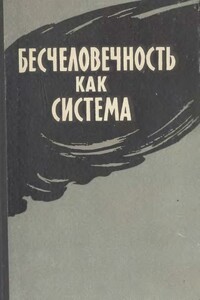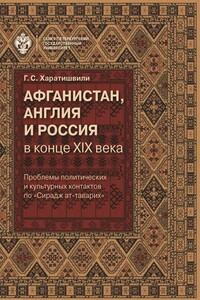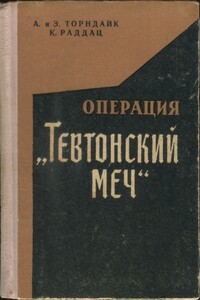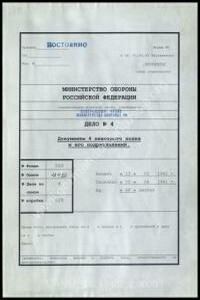The Boy Scouts In Russia - [40]
"You will be held personally responsible for this prisoner," he said. "He is to be sent at once to Grodno for trial as a spy. I will dictate the process accusing him. Let him be dispatched in the morning, under heavy guard."
The officers saluted. Then soldiers were called and Fred was led away. From the first he realized the utter hopelessness of any attempt to escape. He was in the midst of a great army. He could not hope, no matter what happened, to get more than a few yards in any direction. Yet even the thought of his peril did not keep him awake. No sooner was he put in the guard room, where half a dozen soldiers were with him, than he sank into a heavy sleep. He was too tired, in fact, to realize to the full how serious the matter was.
But in the morning, when he was roused to partake of a meal, the full and dreadful peril of his situation came over him. There was something appalling about the way in which his guards looked at him. Most of all, there was a terrible quality in the sympathy of the young lieutenant who paid him a hurried visit.
"I did not know, of course," he said, quickly. "I should have had to take you to him, just as I did, but I should have prepared you for what was coming. I have heard something of the story. You have aroused the general's hatred-and there are terrible stories of his power. Tell me, is there anyone who can speak for you? It may be that I can get some word to them-though it would cost me dear if Prince Mikail discovered that I had done it."
"Boris Suvaroff and his father would help me," said Fred. "But Boris is a prisoner, and so is Prince Alexander, if my uncle tells the truth! And the American ambassador-though I suppose he could do nothing."
"I will do what I can. And remember that Dmitri Sazonoff is your friend, and will believe always that you are a true friend of Russia. Good-bye! You go to Grodno. There, unless there has been a change, are the headquarters of the Grand Duke Nicholas Nicholavitch, who is in supreme command of all our armies. You will be tried there by court-martial. I wish it meant more-but count upon me for all that I can do."
It was still comparatively early when Fred began his journey to Grodno, which was, as he knew, one of the concentration points of the Russian army. The trip was begun in a great motor truck, empty now, which had been used to bring food and ammunition to the front. It was one of a long train of similar vehicles, and in it he rode to the border, where he was transferred to a military train.
He was able on the trip to see what was going on, since no attempt was made to keep him from doing so. And everything he saw served only to impress him more and more with the utter hopelessness of his position. The roads were choked with dense masses of advancing Russians. Troops, horse and foot, hospital trains, ammunition and provision trains, guns-all were moving up; evidently in preparation for the striking of a heavy blow at the German power in East Prussia on a new line of attack.
For the first time Fred saw a country that was really in the grip of a modern army. The swift movements of the German army around the Suvaroff house had not given this impression. There were not so many Germans, relatively speaking at least, and their movements were made with less confusion and greater speed, owing to their possession of railways that had been built with an especial view to their being used in time of war.
Here the railways had all been destroyed by the Germans who had retreated before the advancing Russians. In many places, too, fields had been burned over, that the standing crops might not fall into the hands of the invaders.
Fred almost laughed at the irony of the whole sight. It was because of him that this movement was being made. At great risk to himself he had obtained the information that had led to the sudden change in the Russian plans, of which the great movement he saw was a part. He should be receiving thanks and honors instead of being on his way to headquarters as a prisoner of war, condemned, as he well knew, in advance. For Fred had no illusions. He knew the power of Mikail Suvaroff, who was so plainly an important member of the high Russian command. Against so great a man his word would be valueless.
"This Russian army is like a steam roller," Fred thought to himself. "It may be stopped here or there, but not for long. It will roll over this whole country sooner or later. Well-I'm glad! Even if I've got to suffer because my uncle hates me, it's not Russia's fault. I want Russia to win."
His guards treated Fred well enough. He had an idea that he owed the consideration he received to Lieutenant Sazonoff. He was quite sure that General Mikail Suvaroff had nothing to do with it! And his journey, which might have been one of acute discomfort, was made more than tolerable.
It was late when the train in which he rode after the border was reached arrived in Grodno. Here the army was in complete possession. Men in uniform were everywhere; the civilian population seemed almost to have disappeared. The din was constant. For hours, after he had been taken to a cell in the central police station, he lay awake and listened. Guns rumbled through the streets, motor cars chugged all through the night. He was aroused in the morning by sounds of frantic, steady cheering, and when the guard brought him his breakfast, he asked what that meant. The man's eyes lighted up.

Написанная коллективом авторов, книга «Бесчеловечность как система» выпущена в Германской Демократической Республике издательством Национального фронта демократической Германии «Конгресс-Ферлаг». Она представляет собой документированное сообщение об истории создания и подрывной деятельности так называемой «Группы борьбы против бесчеловечности» — одной из многочисленных шпионско-диверсионных организаций в Западном Берлине, созданных по прямому указанию американской разведки. На основании материалов судебных процессов, проведенных в ГДР, а также выступлений печати в книге показываются преступления, совершенные этой организацией: шпионаж, диверсии, террор, дезорганизация деятельности административных учреждений республики и вербовка агентуры. Книга рассчитана на широкий круг читателей.

Книга представляет собой исследование англо-афганских и русско-афганских отношений в конце XIX в. по афганскому источнику «Сирадж ат-таварих» – труду официального историографа Файз Мухаммада Катиба, написанному по распоряжению Хабибуллахана, эмира Афганистана в 1901–1919 гг. К исследованию привлекаются другие многочисленные исторические источники на русском, английском, французском и персидском языках. Книга адресована исследователям, научным и практическим работникам, занимающимся проблемами политических и культурных связей Афганистана с Англией и Россией в Новое время.

В книге рассказывается история главного героя, который сталкивается с различными проблемами и препятствиями на протяжении всего своего путешествия. По пути он встречает множество второстепенных персонажей, которые играют важные роли в истории. Благодаря опыту главного героя книга исследует такие темы, как любовь, потеря, надежда и стойкость. По мере того, как главный герой преодолевает свои трудности, он усваивает ценные уроки жизни и растет как личность.

Брошюра написана известными кинорежиссерами, лауреатами Национальной премии ГДР супругами Торндайк и берлинским публицистом Карлом Раддацом на основе подлинных архивных материалов, по которым был поставлен прошедший с большим успехом во всем мире документальный фильм «Операция «Тевтонский меч».В брошюре, выпущенной издательством Министерства национальной обороны Германской Демократической Республики в 1959 году, разоблачается грязная карьера агента гитлеровской военной разведки, провокатора Ганса Шпейделя, впоследствии генерал-лейтенанта немецко-фашистской армии, ныне являющегося одним из руководителей западногерманского бундесвера и командующим сухопутными силами НАТО в центральной зоне Европы.Книга рассчитана на широкий круг читателей.

Книга Стюарта Джеффриса (р. 1962) представляет собой попытку написать панорамную историю Франкфуртской школы.Институт социальных исследований во Франкфурте, основанный между двумя мировыми войнами, во многом определил не только содержание современных социальных и гуманитарных наук, но и облик нынешних западных университетов, социальных движений и политических дискурсов. Такие понятия как «отчуждение», «одномерное общество» и «критическая теория» наряду с фамилиями Беньямина, Адорно и Маркузе уже давно являются достоянием не только истории идей, но и популярной культуры.
